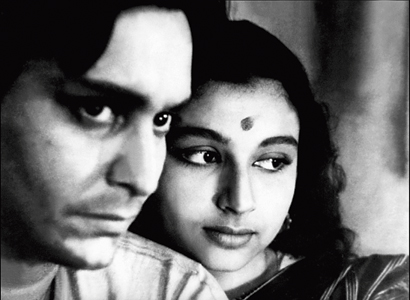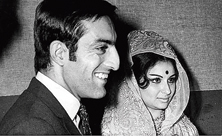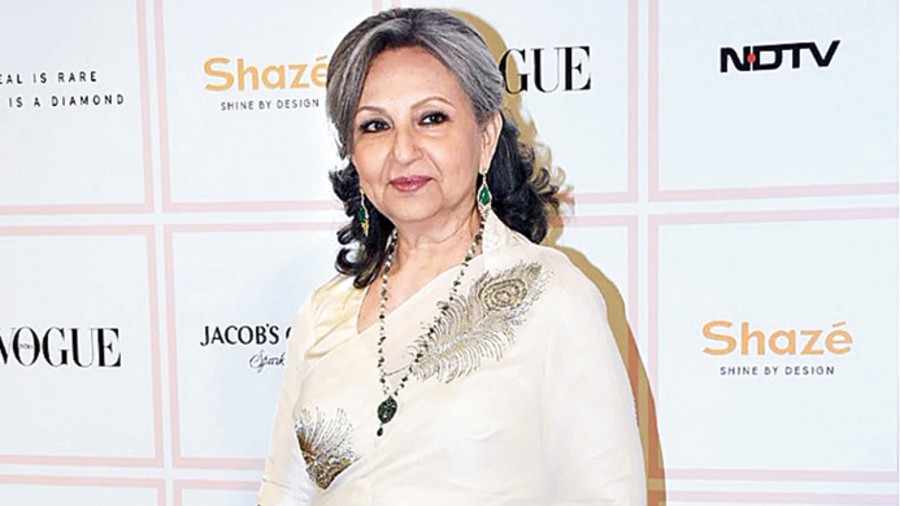Sharmila Tagore was the special guest at a recent session — called ‘The Fireside Chat’ — organised by the Ladies Study Group Kolkata and moderated by LSG president Diya Jaiswal. Over an hour, the veteran actor spoke about her foray into films, working with Satyajit Ray and her journey in life. Excerpts.
You have described yourself as an ‘accidental actress’. You were only 14 when Satyajit Ray cast you in Apur Sansar. How did it happen?
It was a privilege that he wanted to cast me because by then he was already making waves. I come from a very conservative Bengali family and in those days, working in films was an absolute no-no. Girls from good families didn’t work in films, period. But Manikda (Satyajit Ray) was an exception. At that time, he was making a variety of films and they were going abroad and winning lots of awards and acclaim.
So when this happened, there wasn’t any opposition at all. In fact, my father was over the moon and he said, ‘Of course, of course! But don’t let her make a fool of herself’. The opposition actually came from my school. Mrs Das, our prinicipal, said, ‘She will be a very bad influence if she works in films’. I had to change school and go from Bengali medium to English medium. Apur Sansar completely changed my life! It’s such a privilege to have worked with him.

Sharmila Tagore with Soumitra Chatterjee in her debut film Apur Sansar, directed by Satyajit Ray
We all know about Satyajit Ray as a genius film-maker. Can you share some strands of how he was as a person?
He used to give all of us a bound, hand-written script. They are my absolute treasures. He would also draw out every frame. Everything was in his mind, everything was thought out. He didn’t have the budget or technology of (Akira) Kurosawa or (Ingmar) Bergman, though he competed with them. In Sonar Kella, there was a chase sequence for which Kurosawa would have probably had three-four cameras... but he had just one. He didn’t over-instruct; he also didn’t encourage us to memorise our lines. As actors, we simply trusted him.
He was also a great musician... he could play the piano and read and write music. He could also whistle so well... Tchaikovsky and all that. He was an exceptionally gifted person.
You burst into the Bombay scene as a 19-year-old with Kashmir Ki Kali, with Shammi Kapoor...
When Shammi Kapoor is there, he does all the bursting! (Laughs) I was always there, quietly behind him.
What was the move to Bombay like?
The people in Bengal felt I was letting them down, moving from Satyajit Ray to Shakti Samanta and with Shammi Kapoor no less! But it was about going from regional cinema to national cinema. And it was a huge learning experience. In a regional film, your clothes, your house, your look all have the same tone. In a Hindi film, the diversity is more. In those days, because they wanted to give you a pan-Indian identity, they wouldn’t give the characters any surnames... it would be Ms Deepa and all that. Just imagine how much we have changed since then.
The first shot was on the Dal Lake where we filmed Deewana hua badal. Ashaji (Bhosle) and O.P. Nayyar saab (composer) were there. After my shot, Ashaji embraced me and said, ‘Well done! So proud of you!’
And you had a very special visitor while filming Isharon isharon mein...
Oh my god... it was Shashi Kapoor! He was the most beautiful man I had ever seen! And he said he was my fan because he had watched Apur Sansar. With him around, I couldn’t give my shot and Shaktiji asked him to leave the set. But Shashi Kapoor and I became very close friends. He was the only actor in those days — after Amitabh (Bachchan) — who was very punctual on the sets. The others would come whenever they felt like it. I had to have my make-up on and my bouffant in the heat, because we didn’t have air-conditioned sets then, and keep waiting for my co-actor to turn up. I think that’s scarred me for life!

When did you first meet Tiger Pataudi? Tell us about this Mills & Boon romance...
My family was always fond of cricket, especially my mother. Later, she would have to take a Sorbitrate (used to treat heart ailments) during matches because she was so involved. I met him (Mansoor Ali Khan Pataudi) in 1965 at some party. We spoke to each other... he was very English at that time... he had a British accent and he would tell a joke and no one could understand it and he would laugh at his own jokes!
Much before Anushka Sharma was accused of distracting Virat Kohli, you were blamed for distracting Tiger in certain matches...
Most certainly. We used to sit with the crowd, it was slightly cordoned off. I think Tiger dropped a catch and my father actually screamed and said, ‘You shouldn’t have kept him up all night!’ (Laughs)
What drew you to him?
I liked his sense of humour and I felt this man wouldn’t hurt me on purpose. I trusted him... he was gentle and a gentleman. His sense of humour was very wacky, but I loved it.
You did a magazine cover in a bikini sometime in 1966. Tell us about that...
I was happy doing it. The photographer was a little sceptical, but I said, ‘Why not?’ But the reactions were pretty vitriolic. In those days, we didn’t have social media, but the reactions were very critical. I was in London then and when I came back, Shaktiji said, ‘We have to do some damage control’. I learnt that I have to know the audience I am catering to and be responsible. So while people are attracted to glamour, they don’t really have that much respect for it. I wanted to be respected, I wanted to be liked, and so I slowly started changing my image. That’s when I was offered Aradhana and that changed my image. From that film, I was taken far more seriously. And people liked me, I think.
You got married, had children and continued to act in films. What was that like?
My first film was in 1959. I got married in 1968 and Saif (Ali Khan, son) was born in 1970. When I shifted to Delhi, life broadened and went beyond cricket and cinema. I was meeting more interesting people. I was on the board of Air India, with Rahul Bajaj chairing it. It was a different kind of exposure. I think I grew up there. In life, you have to keep yourself engaged, relevant and informed.
What advice did you give your children when they wanted to enter the industry?
I think a better way is to teach by example. They know much more about what happens today. One can give a good education and good values and then the rest is up to them as to how they exercise their options. It’s wonderful the family is growing.
I have grown-up grandchildren... Sara and Ibrahim. They are in Gulmarg now having a ball.
Pictures sourced by the correspondent
